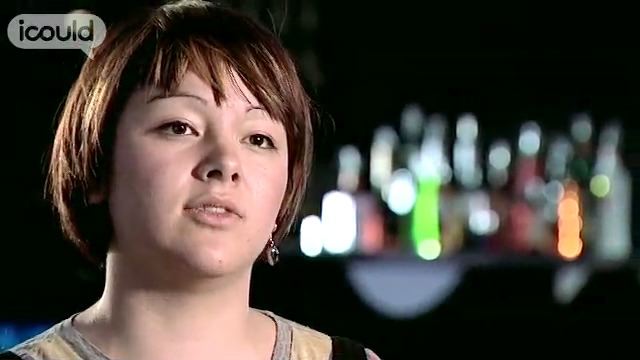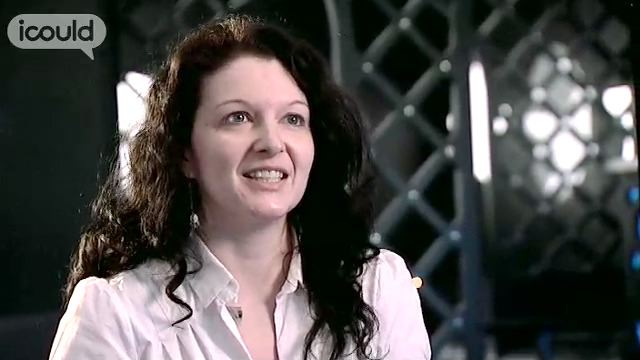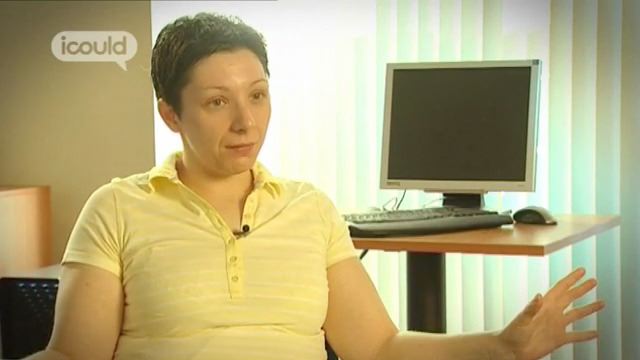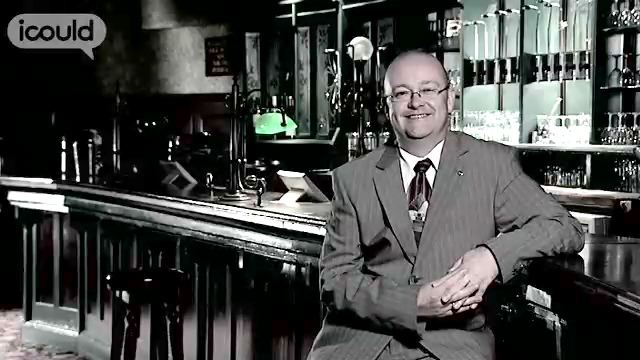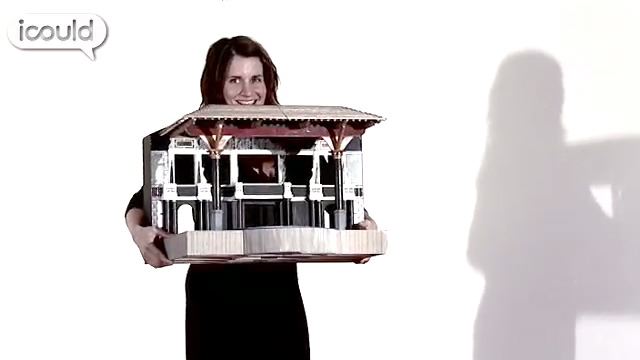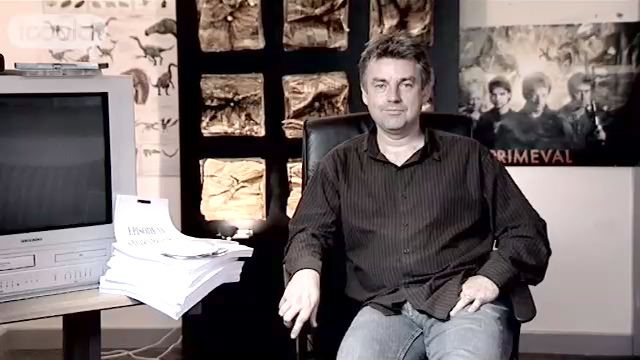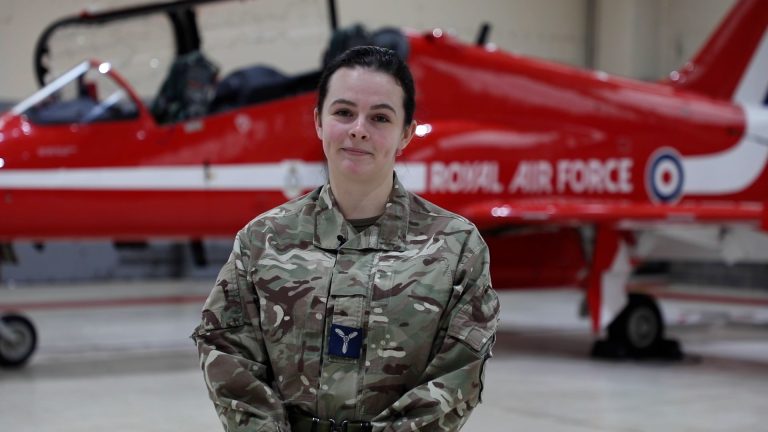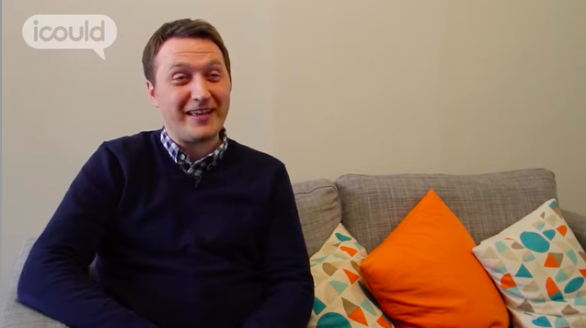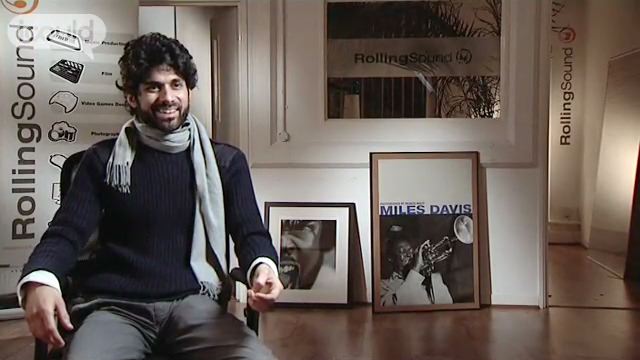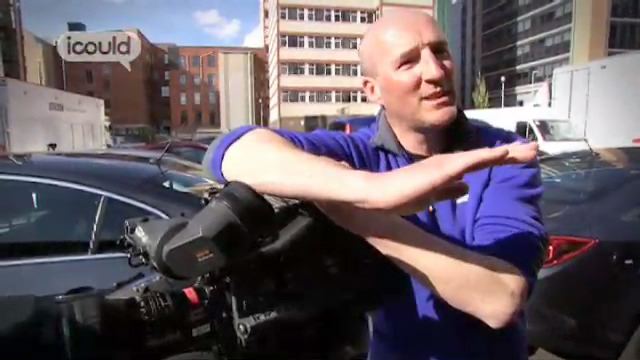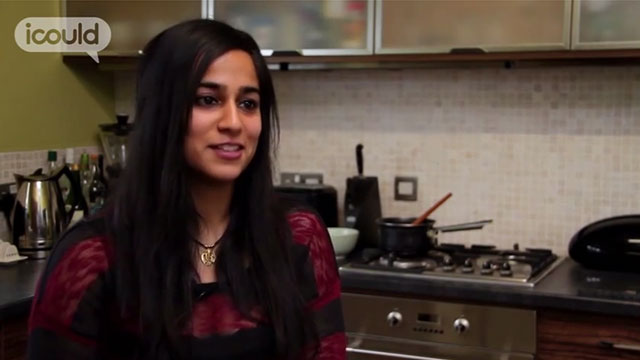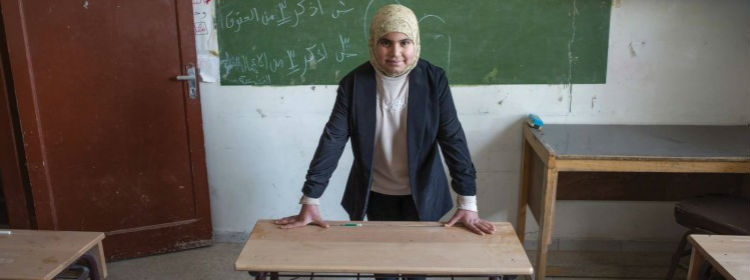Executive Producer
BBC Belfast
Deirdre D
00:02 My name is Deirdre D. I’m an executive producer with the BBC in Northern Ireland.
00:07 I work with the independent film producers and from the moment the documentary or the film or the series is commissioned, I sit down with them we work out how it’s going to look, um whether it, to make sure that it conforms, the end product is what was commissioned and to make sure that it complies with all of the things that it needs to comply with and just to make sure it’s a good film.
00:28 By and large I, I did enjoy school, I had um friends that I made very early on who are still my best friends and uh we, I still chum about with the same four people that I chummed about with at the age of eleven. I kind of wish I’d worked a bit harder, I, I wish I had, you know, um, you know, in, in pub quizzes I wouldn’t be the best one on geography or history so I wish I’d learnt to listen a bit more.
00:49 It’s, it’s vocational with me, I, I, I um chose the subjects that I liked and therefore the subjects that I was good at, so I got good grades but had I chosen something like science or even languages, I mightn’t have done so well.
01:03 My degree’s in psychology, um I wouldn’t say it, it totally gears you up for a career in media but it’s, it’s not the worst thing to do.
01:10 By the time I had got to uh third year at university, I did a four year degree, I was pretty sure I wanted to be a journalist, I, I kind of wanted to do that years back at school but hadn’t always been encouraged on that path, didn’t seem it was the right sort of career for a girl, we were told but uh that, that’s what I had decided to do so to get into journalism you have to have some credentials otherwise you’ll not get past the front door, so I did a postgraduate uh diploma in journalism in London and that’s very practically based, you have to pass law and various other uh courses to, to pass the diploma at the end.
01:47 So that was the more practical side and then, from there, you get um, the most important part of this course is all the attachments, so I did my Christmas attachment in BBC Northern Ireland and my Easter attachment at Greater London Radio in London. So they kept me on uh I stayed there until the end of that year, paid off my overdraft, which was great. But uh I learned a lot so then I came back to BBC Northern Ireland and I said look, can I have a job and so I started off, I was very lucky I, I came in um on the day that another freelancer left, so basically I just stepped into her shoes.
02:20 Every shift is a test in the early days. If you really make a big mistake you’ll never be asked back, so you have to, you know, do the best job you can and just learn everything, you have to soak up every single bit of information like a sponge and just make sure that every day’s the best day you could possibly give till you start getting more shifts and then things start to snowball after that.
02:40 My dad worked in British Telecom and uh I was the first person in my parents’ generation to go to university. Um I was very lucky, my dad’s not around anymore, he’s, he’s dead but mum is still there and uh very supportive, very loving parents who um, whatever I wanted to do was great. It was outside their experience about university and about journalism and, you know, my dad was so glad I was a reporter that the first thing I, I did when I came to the BBC, my dad was so chuffed to see me on and that was great because that’s, you know, that makes it all worthwhile, and you’d come home, I saw you on TV and it’s great you know and I’ve been in the BBC twenty years um, eleven years in news and current affairs.
03:21 Going from uh news and current affairs to factual was a major turning point and it was one that I, even though I got the job and it was a new job and it was a higher grade um that was something that kept me awake for weeks, moving up to leaving, leaving current affairs and going to factual. There’s always, I think in every reporter’s life, there is a crossroads, do I stay in front of the camera or do I make it happen behind the scenes and um I chose the behind the scenes because that’s a whole other world that’s fascinating and I was lucky enough to get a job that put me in the forefront of a brand new series and that was eleven years ago and the series is still running.
04:00 END
Deirdre D is an Executive Producer with the BBC in Northern Ireland. She did a postgraduate diploma in Journalism and had some work experience with the BBC, before joining them and spending 11 years in News & Current affairs as a reporter – “my dad was so chuffed to see me on TV and it’s great, you know”. But then she decided to move behind the camera and work as a producer – “I think in every reporter’s life, there is a crossroads, do I stay in front of the camera or do I make it happen behind the scenes and I chose the behind the scenes because that’s a whole other world that’s fascinating”.
More information about Arts officers, producers and directors
The UK average salary is £29,813
There are 37.5 hours in the average working week
The UK workforce is 47% female and 53% male
Future employment
- Chooses writers, scripts, technical staff and performers, and assumes overall responsibility for completion of project on time and within budget
- Directs actors, designers, camera team, sound crew and other production and technical staff to achieve desired effects
- Breaks script into scenes and formulates a shooting schedule that will be most economical in terms of time, location and sets
- Prepares rehearsal and production schedule for main events, design of sets and costumes, technical rehearsals and dress rehearsals
- Ensures necessary equipment, props, performers and technical staff are on set when required
- Manages health and safety issues
- Selects, contracts, markets and arranges for the presentation and/or distribution of performance, visual and heritage arts
